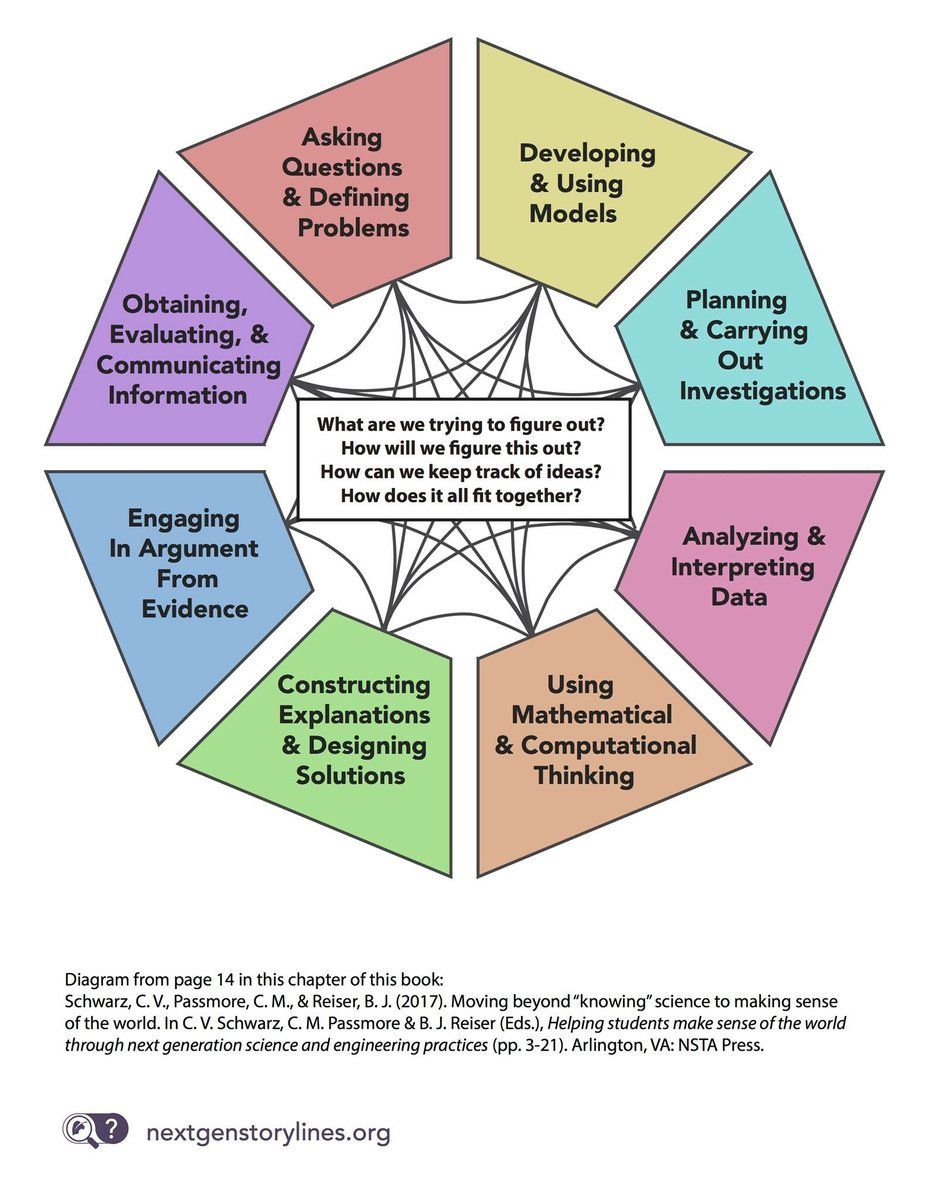
http://freerice.com/#/english-vocabulary/2443

Do we need it? You decide.

Science and engineering work together ultimately to make sense of science practice. The four parts of sense-making that we will see again and again are the following.
-
What are we trying to figure out?
-
How will we figure this out?
-
How can we keep track of ideas?
-
How does it all fit together?
Asking questions to clarify ideas. This principle is what science is all about for students at the elementary school level and even later at the upper levels. A practice of science is to ask and to refine questions that lead to explanations. This is how we learn about the natural world. This is the beginning of a successful and organic experience as a scientist, which we all are, at some level.
As students learn about science and engineering, they explore what is called the Next Generation Science Standards, or NGSS. One of the things they work on is called, Condensed Practices. Condensed Practices build on each level from kindergarten through 12th grade. They begin with asking questions and defining problems to building on experiences and finally designing testable models, tools, and simulations that address these problems. The end game will be for students to take into consideration all they have learned using their scientific knowledge and solve the challenges using their own solutions. Students will put to use the solutions that they develop by applying a process, a system, a tool, or an object. As they advance through grade levels, they build on their previous experiences through trial and error.
The goal is to build conceptual understanding to make sense of the world. We ultimately want students to develop explanations and solutions. We want critical thinkers and problem solvers. We need critical thinkers and problems solvers.

For better or worse, anyone can write a blog post about anything they want. Everyone has a voice and the best voices will rise to the top.
The writer can show their personality:
In blog posts, the writer has more leeway to add in their voice and personality than other types of writing.
Blogs are a great form of mass communication:
You can help people, learn new things, entertain your audience-the possibilities are endless and amazing. Blogging opens up all of these to a very wide audience.
You can make money:
Get the right blog going and you can make a lot of money through advertising and sponsored posts.
It allows people to craft better thoughts:
Instead of reading haphazard, uneducated Facebook statuses, it's much better to see people's thought process in a well-written blog post.
You can establish a community:
Blogging allows you to connect with other individuals who share the same interests. Sharing ideas and opinions within your community helps establish yourself as a thought leader.
Good for SEO:
Keeping content on your site fresh and relevant, you can use your blog to boost the search engine ranking (SEO) of your site and your business.
It brings people back to your site:
If your blog is strong enough and updated regularly, people will come back looking for more and bring traffic back to your site as well.
It's free:
It costs you a grand total of zero dollars to post to the blog, so if you have something to say, there's nothing to stop you.
You can establish yourself as a thought leader:
A blog is a great place for your original thoughts, and it can be a wonderful way to show off your individuality. If people like your ideas, you can become a thought leader in your industry!
What else do you love about blogs? Let me know!



